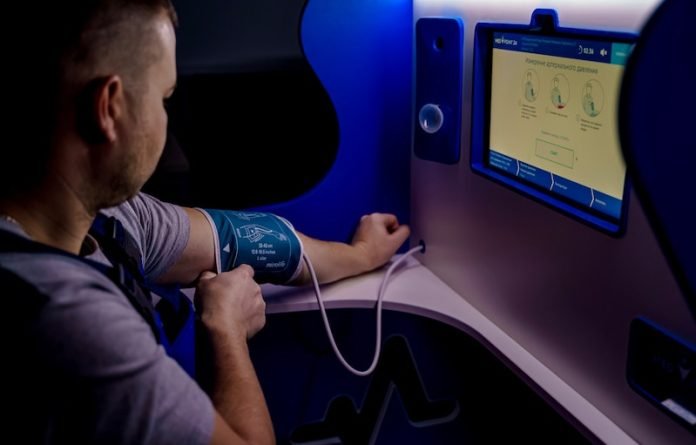
In a study from the University of Exeter, scientists found that blood pressure should be measured in both arms and a higher reading should be adopted to improve hypertension diagnosis and management.
They analyzed data from 53,172 participants in 23 studies worldwide to examine the implications of choosing higher or lower arm pressure.
The study found that using the higher arm blood pressure reading reclassified 12% of people as having high blood pressure, who would have fallen below the threshold for diagnosis if the lower reading arm was used.
Although International guidelines advise checking blood pressure in both arms, the practice is currently not widely adopted in clinics.
In the study, the team found that using the higher arm measurement compared to using the lower arm resulted in the reclassification of 6572 (12.4%) of participants’ systolic blood pressures from below to above 130 mm Hg, and 6339 (11.9%) from below to above 140 mm Hg, moving them above commonly used diagnostic thresholds for hypertension.
This study showed that failure to measure both arms and use the higher reading arm will not only result in underdiagnosis and undertreatment of high blood pressure but also under-estimation of heart disease risks for millions of people worldwide.
The team also revealed that higher arm blood pressure readings better predicted all-cause mortality, heart disease mortality, and heart disease events, compared to the lower arm reading.
The authors stressed the importance of assessing both arms in the diagnosis and management of high blood pressure and heart disease.
it’s impossible to predict the best arm for blood pressure measurement as some people have a higher reading in their left arm compared to their right and equal numbers have the opposite.
Therefore, it’s important to check both arms as detecting high blood pressure correctly is a vital step towards giving the right treatment to the right people.
If you care about high blood pressure, please read studies that early time-restricted eating could help improve blood pressure, and an effective way to treat resistant high blood pressure.
For more information about blood pressure, please see recent studies about added sugar in your diet linked to higher blood pressure, and results showing vitamin B can help reduce drug-resistant high blood pressure.
The study was conducted by Dr. Christopher Clark et al and published in Hypertension.
Copyright © 2023 Knowridge Science Report. All rights reserved.



